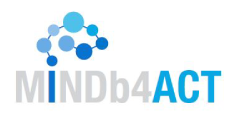 https://www.synyo.com/wp-content/uploads/SYNYO-NEWS-featured-image-NEW01009401EN.png
400
459
leo
https://www.synyo.com/wp-content/uploads/2017/09/synyo-logo.png
leo2026-02-01 13:41:502026-02-03 10:18:50GreenEsteem: Project for sustainable Nature-Based Solutions through Co-Creation Launched
https://www.synyo.com/wp-content/uploads/SYNYO-NEWS-featured-image-NEW01009401EN.png
400
459
leo
https://www.synyo.com/wp-content/uploads/2017/09/synyo-logo.png
leo2026-02-01 13:41:502026-02-03 10:18:50GreenEsteem: Project for sustainable Nature-Based Solutions through Co-Creation Launched
MINDb4ACT: Researching the status and stakeholder requirements for countering violent extremism
As part of the MINDb4ACT project, a macro-survey and semi-structured interviews have been implemented for supporting the detailed analysis of the field as well as for collecting the needs of the practitioners and law enforcement professionals. The survey focuses on current trends in anti-radicalization approaches at local, national and EU levels. This article provides a summary of the main outcomes.
The MINDb4ACT macro-survey was operated from December 2018 until early April 2019 and was later complemented by the organized focus-group interviews in each member state. Around 300 stakeholders from eight EU Member States (EU MS) took part in the survey and 15 interviews were conducted with experts on countering violent extremism (CVE).
The question-set included 28 questions, which were structured along several topics that aimed to cover:
- convergence/divergence of security/social integration approaches;
- theoretical models;
- digital tools and services to support CVE work of the LEAs;
- needs for training and capacity building;
- mapping main CVE infrastructures (multi-agency support/multi-partner approach);
- main best practices at CVE and training;
- added value of EU participation and International Cooperation;
- transfer of knowledge and collaboration with experts;
- Integration of ethical and security dimensions.
As a second step, to refine data and find more national and local examples (that could not be embraced by the survey), semi-structured interviews in the format of the focus groups were organized in eight respective countries. The analysis of the empirical data (which is provided in the following sections), contributes to the understanding of the insights from the Community of Practice on current framing, practices, policies, gaps of CVEs infrastructures and transfer of knowledge. Also, it contributed to the understanding of integration of security and ethical dimensions, main used models as well as added value of the EU and international cooperation.
Counter violent extremism in EU countries
The first-hand data received from the study allows to make concrete conclusions on the current state of affairs in CVE in the EU and individual EU Member States.
Primarily, the study showed that in the EU various stakeholders distinguish between non-violent radicalization and violent extremism or terrorism. Therefore, the preventive pre-crime approach is not only supported by international institutions but also by the EU Member States. The EU stakeholders greatly frame radicalization as security and societal issue. The former is most likely related to the dominance of security actors involved in countering violent radicalization at the national level. If the police fulfil a principal prevention role in the country (like in the UK, Germany, or Spain), then countries’ definite approach is rather security-related. In some countries – like Belgium, or Austria, Italy or Poland – the drivers for radicalization are seen as societal, i.e., caused by events, public opinion, media or politics. All of those identify the national approach in combatting radicalization. At the EU level, it makes no sense to talk about a single factor moving the policy development, but rather a constellation of those factors. At the level of the EU Member States, we can, however, trace dominant drivers depending on the national situation.
Radicalisation, prevention and deradicalization in practice
To boost effectiveness, many stakeholders adopt various theoretical models and approaches in their work. These models are either based on the national governmental programs (to a greater extent), or academic studies, or, in some cases, context-specific empirics.
Deradicalization remains a grey area when it comes to provoking a variety of concerns on its effectiveness coming from stakeholders. First of all, awareness of national and international programs is not high, although more than a half of stakeholders are in favour of the idea of having those in the national agenda. Serving a vector for those policies, i.e., the demand for programs is defined by national statistics of cases, where such programs can be applied. There are requirements coming from stakeholders concerning such strategies, such as tailor-made approach (e.g., addressing minors), more qualified trainers, differentiation between de-escalation, disengagement and deradicalization, addressing all forms of radicalization, ability to provide emotional management of hatred and anger, and follow-up on the impacts of those approaches. The EU stakeholders express desire to learn more about various exit strategies through national, or international trainings.
Trainings and capacity building
As for the trainings and capacity building, these are seen as essential by the EU CVE actors in furthering and upgrading their knowledge. Both specialized and more generic national training opportunities are available for the EU stakeholders (teacher Training Center in Poland, the Federal Agency for Civic Education in Germany, UK PREVENT training and other). The majority of stakeholders nevertheless would like to increase the number of such trainings. The forms of trainings vary from in-classroom to field training or online trainings. Sharing good practices both through national and international events deems important for the EU stakeholders, even though they are aware of contextuality impacting the success rate after their adoption.
Multi-stakeholder and inter-institutional collaboration
The big majority of stakeholders in countering violent extremisms (CVE) agreed that in order to succeed in prevention, strong multi-agency collaboration needs to be established among all stakeholders involved in different fragments of preventive activities. Each of those acts not only as information holders but also as know-how holders, using a variety of practical techniques, which are enriching the whole prevention pattern. In some cases, national cooperation among stakeholders is part of the national strategies (Austria, Belgium or Spain) or formalized protocols (Italy, France). In other cases, these are networks of various actors (Germany, or Poland). Besides, cooperation is already embedded in the concept of the community policing featuring in the UK, Germany, Spain and other countries. The majority of stakeholders stick to intersectoral collaboration, which they find indispensable. However, the often-neglected multi-agency approach is seen as part of a bigger success in prevention.
The majority of the EU stakeholders are involved in various forms of international cooperation. These forms overlap: trainings, workshops and consultation organized by international actors, or internationally funded projects. The cooperation through European funded projects is reported as a very successful way not only to get to know international partners but also increase cooperation at the national level. Above all, for nearly half of the stakeholders, international cooperation is seen as an opportunity to exchange good practices and learn more about experiences in other countries.
Ethical protocols and trainings
On the Ethical side, most of the organizations dealing with individuals in CVE have various professional protocols on ethics. Data protection professional guidelines is the biggest constituent part of ethical requirements for the EU stakeholders. For some professionals more than for others, ethical protocols are part of the organizational procedures. Social workers and educators are among those whose activities are ruled by ethical standards most and who use those in their everyday work.
To gain certain competences in skills in this area, the CVE stakeholders take part in various trainings. Among various stakeholders, a high percentage of LEA, judicial professionals, alongside social workers and health care workers undergo specialized trainings on ethics. This is due to the rapidly changing legal contexts and high level of responsibly towards legality.
Links
https://cordis.europa.eu/project/id/740543
Keywords
Radicalisation prevention, survey, research, practitioners, interviews




